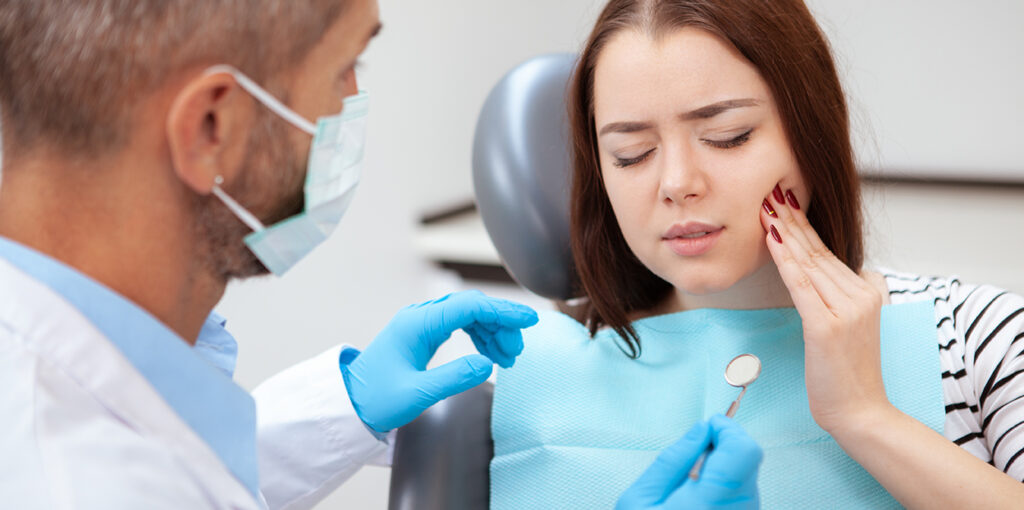
Urgent (Emergency) Dental Care in Encinitas, CA
While regular dental visits and preventive care can help avoid many oral issues, there are instances where emergency dental treatment becomes essential. Our dentists at Millennium Dental in Encinitas, CA, and the nearby area provide this crucial care to address various urgent oral problems, such as infections or missing teeth. Emergency dental treatment promptly alleviates mouth pain without needing a prior appointment.
At Millennium Dental, we are committed to delivering emergency dental treatment to manage common oral issues and enhance patients’ overall oral health. Timely and proper care is vital for a swift recovery from any dental emergency.
If you are experiencing severe mouth pain and require immediate medical attention, please contact us at 760-436-6161. Schedule an appointment promptly to restore and safeguard your oral health.
Understanding Emergency Dentistry
While most dental practices offer routine checkups with scheduled appointments, emergency dentistry caters to patients facing significant dental trauma that demands immediate attention. We focus on providing swift and effective care for those in urgent need.
When To Visit an Emergency Dentist
Not all oral problems require emergency dental care, so patients must examine their situation before making an appointment. Most minor issues can wait a few days for a scheduled appointment. However, there are several reasons to seek emergency dental care:
- Restorative emergencies: Accidents can occur at any time, and in the event of a missing or chipped tooth, it is best to seek immediate care. Restorative emergencies require dental care to preserve teeth, so they remain functional. Dentists can then replace teeth to restore the patient’s smile.
- Severe gum pain: According to WebMD, patients should visit the dentist if minor tooth, jaw, or gum pain lasts more than two days. However, those who are in extreme pain should visit the dentist immediately. Pain that persists despite taking over-the-counter medications, such as Aleve®, Tylenol®, or Advil®, could indicate a serious infection or gum disease.
- Tooth abscess: Tooth abscesses are caused by pockets of pus that develop underneath teeth. In addition to being extremely painful, a tooth abscess can lead to a life-threatening infection if left untreated. Seeking immediate care allows dentists to drain the pus that causes the pain before the problem becomes more severe.
- Lost fillings: When patients lose cavity fillings or crowns, the opening is susceptible to infection. Replacing lost crowns and fillings eliminates pain and reduces the chance of infection setting in. Waiting to receive this treatment could elevate patients’ pain.
“…there are several reasons to seek emergency dental care.”
Benefits of Emergency Dental Care
Emergency dental treatment helps relieve mouth pain quickly and effectively. Dental trauma can occur from an accident or an injury. Seeking immediate care when a problem occurs prevents it from becoming a more extensive issue requiring harsher treatments. By taking control of dental emergencies and visiting the dentist immediately, patients can drastically improve their oral health.
“Seeking immediate care when a problem occurs prevents it from becoming a more extensive issue requiring harsher treatments.”
Treatments for Dental Emergencies
Since there are many types of dental emergencies, treatment options vary. The dentist will first examine the problem to determine the best course of treatment. After diagnosing the issue, the dentist can either treat the infection, remove the infected tooth, or replace missing tooth fragments. The dentist may also prescribe pain medication or antibiotics to aid in recovery.
“Since there are many types of dental emergencies, treatment options vary.”
Frequently Asked Questions
Q. Does emergency dental care hurt?
A. While many emergency dental treatments are uncomfortable, dentists will try to keep patients comfortable as possible. More pain may occur during the recovery period. The dentist can provide pain medication to keep patients comfortable during the recovery process.
Q. Is emergency dental care preventable?
A. According to the Texas A&M University Health Science Center, most dental emergencies are preventable with proper preventable care. If patients neglect regular oral care, minor issues can quickly escalate into major problems that require extensive intervention. However, unpreventable accidents do happen occasionally.
Q. How can a displaced tooth be preserved during a dental emergency?
A. The American Academy of Endodontists states that a dislodged tooth can be preserved and restored with proper medical care. After locating the fragment or whole tooth, the patient should place it in a glass of milk or warm saltwater. This preserves the tooth until the dentist can replace it.
Q. How is a restorative emergency different from another dental emergency?
A. Restorative emergencies are often cosmetic and functional in nature, while other dental emergencies typically result in more pain. A chipped tooth may be uncomfortable, but depending upon its placement, cosmetic appearance or functionality may be a bigger concern than pain. Because of this, the dentist may use dental cement or glue to fasten the fragment back in place before restoring its appearance.
Q. What qualifies as a dental emergency?
A. Any type of dental trauma can require emergency dental care. Whether it is caused by an infected tooth, diseased gums, or an accident, a dental emergency needs quick intervention to relieve pain. Therefore, any oral health problem that demands immediate attention qualifies as a dental emergency.
Q. How does emergency dental treatment benefit oral health?
A. Ignoring dental problems can lead to deteriorating oral health. While preventative care is the first line of defense against major dental problems, emergency dental procedures may eliminate the issue once it occurs. By making patients aware of the contributing factors that led to the problem, emergency dental treatment may prevent the issue from recurring and lead to better overall health.

Comments closed
No comments. Leave first!